The Economics and Statistics Division maintains archives of previous publications for accountability purposes, but makes no updates to keep these documents current with the latest data revisions from Statistics Canada. As a result, information in older documents may not be accurate. Please exercise caution when referring to older documents. For the latest information and historical data, please contact the individual listed to the right.
<--- Return to Archive
For additional information relating to this article, please contact:
January 09, 2019HOUSING STARTS, DECEMBER AND ANNUAL 2018 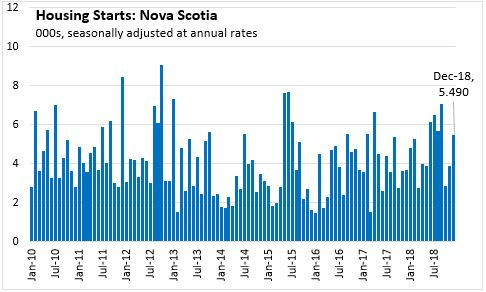
Nova Scotia's housing starts (seasonally adjusted annualized rate) increased 41.4 per cent to 5,490 in December compared to 3,882 in November. Compared to December 2017, housing starts were up 48.2 per cent.
Housing starts were up 76.1 per cent in Halifax to 3,470 compared to 1,971 in November. Halifax starts are up 19.5 per cent compared to December 2017.
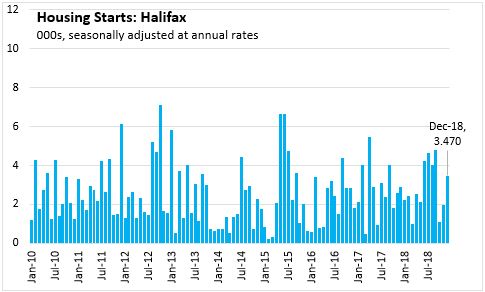
The six-month moving average of housing starts in Nova Scotia and Halifax was relatively flat through 2017. During 2018, the six-month moving average rose due to higher starts for multiples and has remained relatively flat since September.
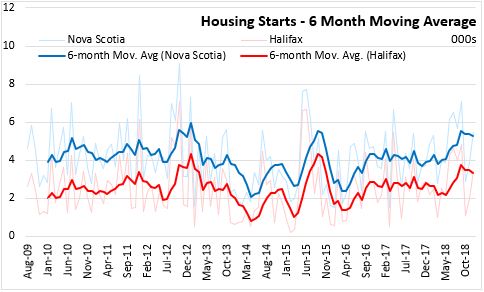
In urban areas, housing starts for multiples are generally higher than for singles with greater variability month-to-month. The six-month moving average for singles has remained relatively flat since 2017, despite a period in the first half of 2018 when it rose gradually. The six-month moving average for multiples rose during the summer months of 2018 and have since leveled off.
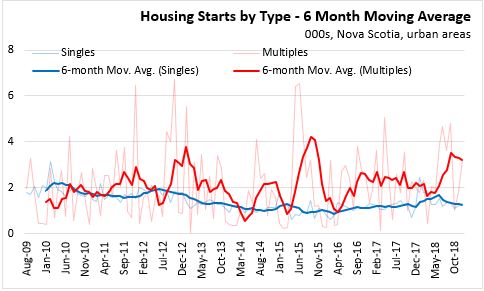
Nationally, housing starts are down 4.9 per cent in December to 213,419 compared to 224,349 in November. National housing starts are 0.3 per cent higher than in December 2017.
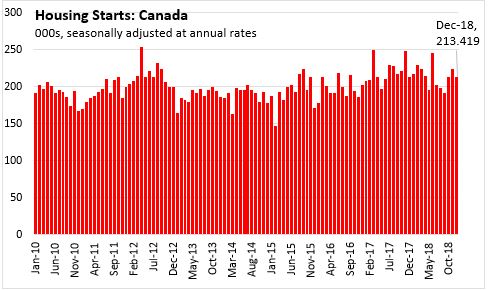
ANNUAL
Nova Scotia's annual housing starts were at a level of 4,785 in 2018, which was 20.1 per cent higher than in 2017. Starts were higher for both singles and multiples in 2018, with starts for multiples at their highest level since 1985. Starts for all types of multiple unit dwellings (apartments, semi-detached and row) were up in 2018.
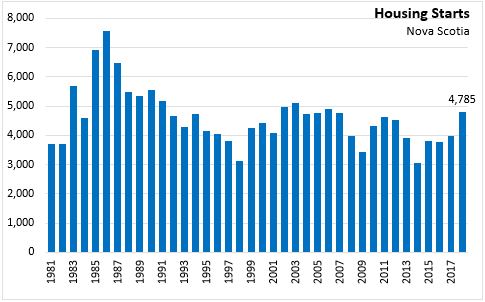
Since 2011, starts for multiples have outnumbered starts for single detached units in Nova Scotia. In 2018, multiple starts increased to 2,759 and single detached starts increased to 2,026.
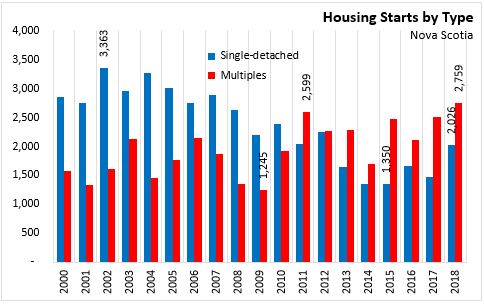
Housing starts were down 3.1 per cent across Canada in 2018. Six provinces reported declines compared to 2017, with the largest declines in Saskatchewan (-26.4 per cent) and Newfoundland and Labrador (-21.7 per cent). Nova Scotia (20.1 per cent) and Prince Edward Island (19.9 per cent) reported the largest increase in housing starts over 2017, while there were smaller increases in Quebec (0.8 per cent) and New Brunswick (0.2 per cent).
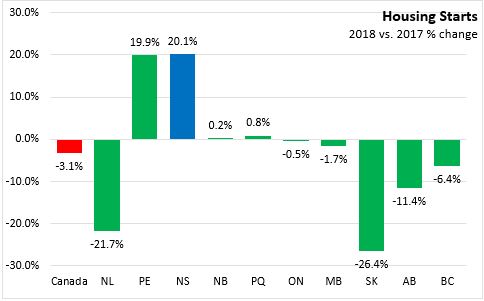
Note: Urban areas are defined as areas over 10,000 people
Statistics Canada Table 34-10-0158-01, Table 34-10-0156-01, and Table 34-10-0126-01 (Annual)
CHMC Housing Market Information Portal
<--- Return to Archive